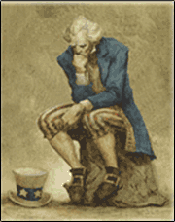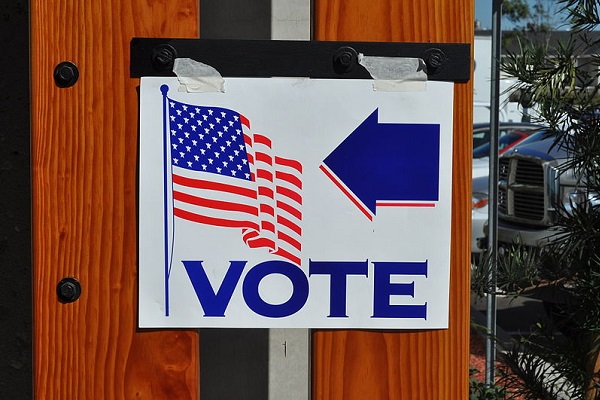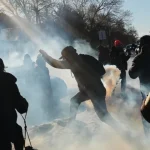
–>
April 1, 2023
When you first hear about the group New York Citizens Audit (NYCA), you wonder why it took so long for regular citizens to start scrutinizing their own voting rolls. It’s shocking ,really, even contrary to the American spirit, to think that voters in every state have taken so long to self-police their own voting process — instead assuming that whatever was happening was somehow honest, legitimate, or even legal by their states’ own declared laws.
‘); googletag.cmd.push(function () { googletag.display(‘div-gpt-ad-1609268089992-0’); }); }
It is those declared laws that Marly Hornik is using as a litmus test as she and her nearly 1,500 volunteers review New York State voter rolls they obtained from the New York State Board of Elections (NYSBOE), as well as rolls obtained from individual counties.
It all started, Hornik says, when she and like-minded individuals were told they were “not essential” early in the pandemic:
We were told ‘You can stay home now, and if you’d like to come back to work you can participate in a medical experiment.’ And so we thought gosh, while we’re home, let’s just get a copy of the New York State voter rolls and see what we find. We thought in a deep blue state like New York, we probably wouldn’t find much interesting, because…why would you go to all that trouble and hassle and potential legal difficulty if you already have a solid voting base that you can rely upon?
‘); googletag.cmd.push(function () { googletag.display(‘div-gpt-ad-1609270365559-0’); }); }
On October 21, 2021, they received their first copy of the state voter roll database, called NYSVoter. Then, using FOIA requests, they asked every county board of elections for copies of its local database (not all complied). Hornik said this was important because election law is clear that county boards of elections maintain their own databases, with the state database basically acting as a compilation. The state has almost no authority to add, change or delete any kind of information from the database. When NYCA first began, the 2020 general election was the primary focus.
Hornik recently spoke to a packed house in a church fellowship hall in Utica, N.Y. Lying within a county that voted overwhelmingly for Trump in 2020, the hall was filled with mostly working-class folks who sat in rapt attention. Some were still in their office suits; others bore the marks of dirt or paint from a hard day’s work.
Hornik explained she was going to show them not only information pertaining to 2020, but also a “ton of information they found that was not specific to any election.”
In May of 2022, NYCA brought its findings (specifically related to the 2020 election) to the New York State Board of Elections, the attorney general, the secretary of state, and the heads of the Democrat and Republican parties — also the county commissioners in 29 counties, “as well as the sheriffs, D.A.s, and other officials where it was appropriate.” Hornik continued, “And we did not receive a single response. Voter rolls were not touched, and they went ahead and administered another federal election and certified the results.” It was that complete disregard for their findings that prompted Hornik and her colleagues to take their case to the people in cities and small towns across New York. (The full video of Hornik’s address is available here.)
Hornik and her team were traversing the state, from Brooklyn to Buffalo. She was hot off the stage at the Queens Village Republican Club, where she’d given the Lincoln Address. Following keynote speaker Steve Cortes, Hornik quoted from the First Continental Congress regarding the people having a share in their own government while not being ruled “by the edicts of men over whom they have no control.” She continued:
Our elections are a precious jewel[.] … [They] are surrounded and protected by an interwoven tapestry of laws. To the bad actors we declare, “You cannot have our sparkling jewel, and you will not be allowed to harm our nation.”
‘); googletag.cmd.push(function () { googletag.display(‘div-gpt-ad-1609268078422-0’); }); } if (publir_show_ads) { document.write(“
Hornik, a married mother of three and self-described “holistic goat farmer,” has educated herself at length on the subject on which she speaks. What would she say to detractors who might question her qualifications to speak on such a monumental issue as the accuracy of state voter rolls? She was quick to answer:
The original structure of our government was made so that intelligent, critical-thinking, sovereign-minded citizens would participate in government for limited periods of time. They wouldn’t have to be experts or elite rulers who were staying in those positions for decades as we have now. I would say that NYCA represents a return to the original vision of the founders of governance by the people.
Supporting Hornik in the background are 1,500 vetted volunteers consisting of data experts, computer nerds, poll workers, teachers, homeschoolers, and an array of otherwise regular folks from farmers to firefighters.
One of those volunteer computer nerds has been blogging regularly about his findings over at Substack. He prefers to be known as “Dr. Zark.” His newsletter, The Zark Files, contain a chronological archive of his findings as he continues to unscramble algorithms in New York’s voter rolls. Some of his entries include
The man blogging as Dr. Zark is director of the NYCA research team. According to Hornik, he has submitted his research regarding the steganography in the New York State voter roll database for peer review and publication in a journal that will be published in May. They are staying tight-lipped on the name of that journal for now. Hornik said she believes that the journal’s findings will generate media attention.
Whatever happens, it’s clear that NYCA has started a movement of the people to ask questions and demand answers. Their goal is an end-to-end audit of the voting process, from voter registration to certification of results.
Hornik sees their work as a way forward, toward exposing the corruption of what she calls “blue state regimes.” She concluded:
The Democrats have put their stake in the ground here. … In the minds of the vast majority of Americans, New York is just crazy. People in New York are nuts, and they vote for this. But when you say “New York is gone forever. California is gone forever. Illinois and New Jersey are gone forever. Looks like Arizona’s on the fence. Pennsylvania’s gone forever”…you realize they’ll never win again in the Electoral College. So supporting this effort in New York State is actually a national issue for anyone that’s interested in ever electing another conservative president.
Susan D. Harris can be reached at www.susandharris.com.

Image: tom.arthur via Flickr, CC BY-NC-SA 2.0.
<!– if(page_width_onload <= 479) { document.write("
“); googletag.cmd.push(function() { googletag.display(‘div-gpt-ad-1345489840937-4’); }); } –> If you experience technical problems, please write to [email protected]
FOLLOW US ON
<!–
–>
<!– _qoptions={ qacct:”p-9bKF-NgTuSFM6″ }; ![]() –> <!—-> <!– var addthis_share = { email_template: “new_template” } –>
–> <!—-> <!– var addthis_share = { email_template: “new_template” } –>





